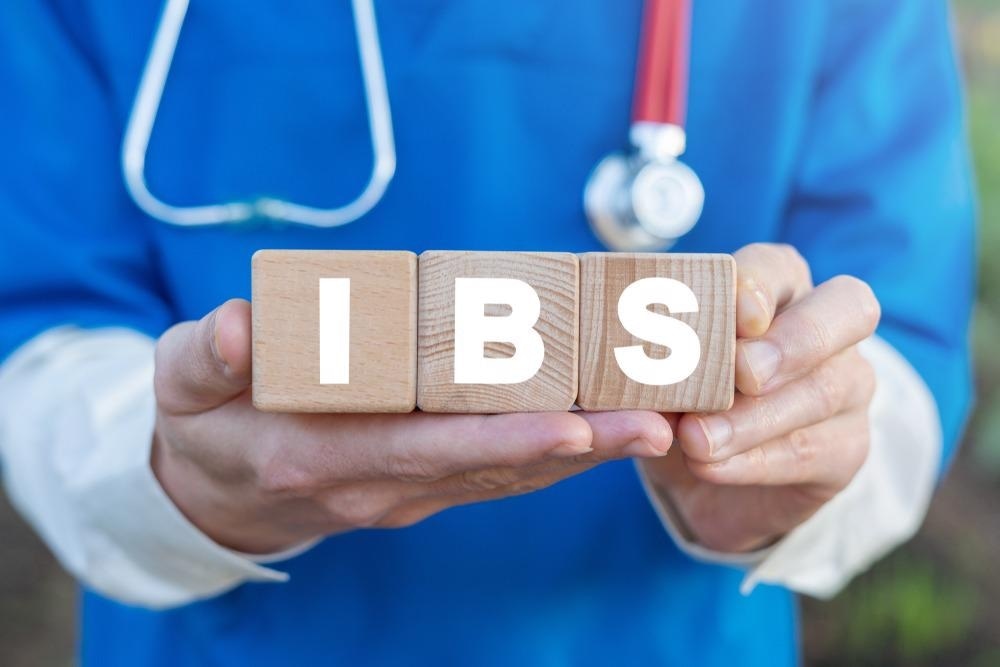I am a tenured Professor of Medical Genetics at the Libera Universita’ del Mediterraneo in Casamassima, Italy, and Ikerbasque Research Professor at CIC bioGUNE in Derio Spain. I have more than 20 years of research experience in the field of human genetics and complex diseases, and the ultimate goal of my work is a translational application for improved therapeutic precision in gastroenterology.
My team combines genomic, computational, and pre-clinical expertise to identify causative genes and pathogenetic mechanisms leading to gastrointestinal disease and/or deleterious alterations of the human gut microbiome.
Why is regular bowel functioning so important to our health?
Defecation is a fundamental physiological process that results in the evacuation of feces, which contain byproducts and waste derived from the digestion of food to extract nutrients, as well as toxins ingested with aliments and/or medicines.
Defecation (as well as continence, the voluntary control of defecation) depends on the coordinated action of multiple physiological systems including the central (brain and spine) and peripheral (in this case enteric) nervous systems, smooth muscles controlling peristalsis (pushing food and feces along the GI tract), and hormones with an influence on these processes. Disturbances of bowel habits can lead to constipation, diarrhea, bloating, and other symptoms that are characteristic of common conditions like irritable bowel syndrome.

Image Credit: Emily frost/Shutterstock.com
Please give a brief explanation of irregular bowel habits like irritable bowel syndrome (IBS) and their impact on individuals' livelihoods.
IBS is a common gastrointestinal (GI) disorder characterized by abdominal pain and bloating, irregular bowel habits, constipation, and diarrhea. Although not life-threatening, IBS severely impacts the quality of life (as much as asthma or other common diseases) and poses an important socioeconomic and healthcare burden. What causes IBS is not known.
From clinical research in affected people, a few pathophysiological mechanisms and risk factors have been proposed including dysregulated brain-gut communication, a hyper-reactive nervous system, food intolerance, gut dysmotility, and prior physical or emotional traumatic experiences or gastroenteritis. Poor disease understanding means therapeutic options are limited, and mostly directed at ameliorating symptoms rather than targeting specific (unknown) causes.
Why did you decide to look at how genetics influence bowel habits?
Complex diseases like IBS represent a remarkable challenge for genetic investigation, especially when alternative criteria and definitions are used to identify patients and specific subtypes of disease in different settings, or when the diagnosis is reached based upon the exclusion of other diseases (scenarios that are both often observed in IBS routine clinical practice because of the non-uniform application of diagnostic expert consensus criteria).
In our quest for genetic insight in IBS, we sought to adopt a different strategy, based on the analysis of so-called endophenotypes. This aims to reduce complexity by deconstructing a disease into individual physiological components (endophenotypes, when known) that bear a closer relationship to the biological processes underlying illness: blood pressure for coronary artery disease may be a typical example. The idea of this approach is to identify relevant genes and mechanisms that may be therapeutically actioned to treat disease. Hence, we opted to study gut motility as a hallmark endophenotype of IBS and worked with data on bowel habits for this purpose.
While direct measurement of intestinal motility in humans requires clinical procedures that are not suitable for large-scale studies, guesstimates and indirect assessments can be obtained from questionnaires data in relation to, for instance, stool frequency (defined by the daily number of bowel movements): this has been shown to correlate with gut motility and may thus be used as its proxy for large genetic studies (asking people about their bowel habits).
How could genetics indicate a predisposition to bowel problems?
As it can be derived from what was discussed above, the products of many genes are involved in the control of defecation and our bowel habits in general. Even small alterations of their function(s) and expression could thus lead to perturbation of the coordinated actions that keep things under control, ultimately manifesting with constipation or diarrhea or other bowel symptoms as seen in people with IBS.
Our DNA may be key to this, in that some common variations in the DNA sequence called single nucleotide polymorphisms (SNP) can indeed give rise to gene products whose function or expression is slightly different. The bowel function(s), including bowel habits, of people carrying these DNA variants, may thus be affected and result in differences from non-carriers. This is what we observed in our study, that is, among people with higher (or lower) stool frequency, specific DNA changes were more common than in the rest of the population.

Image Credit: Natali _ Mis/Shutterstock.com
How did you carry out your study and how reflective is it of the global population?
Our research aims to identify genetic risk factors for IBS, using genomic information and health-related data from large population-based cohorts and well-characterized patients from tertiary clinics. For this purpose, we created and currently coordinate the Bellygenes initiative (an international collaboration with >50 teams across the world).
Our latest study in Cell Genomics reports the results of just such an analysis, performed in 167,875 from population-based cohorts in the UK (UK Biobank), the Netherlands (LifeLines-Deep), Belgium (Flemish Gut Flora Project), Sweden (PopCol), and the USA (Genes for Good), studying their genetic makeup in combination with questionnaire data, mostly in relation to a simple query about the number of times one opens the bowels every day (the “stool frequency”, as we called it in the study). These are large numbers and therefore ensure our study is representative of the general population, however, caution must be used especially due to the fact that we were unable to include other important elements in our analyses like, for instance, dietary factors which are well-known to affect people bowel habits.
In addition, the study was limited to individuals of European ancestry (mostly British whites) and it remains to be tested whether the same genetic factors also influence bowel habits in people of different genetic backgrounds.
What did you find about particular genes and how they affect bowel movements?
We demonstrated for the first time that human gut motility (stool frequency) is at least in part a heritable character and that its genetic architecture is in fact most similar to that of IBS. We also identified 14 regions of the human genome where specific DNA variations occur more often in individuals reporting higher (or lower) stool frequency compared to the rest of the population.
Placed within these regions are multiple genes whose products are involved in the communication between the gut and the brain, including neurotransmitters, hormones, and receptors expressed primarily in intestinal nerves and enteric neurons that control human peristalsis.
What were the “polygenic scores” your team devised and how could these lead to more personalized treatment of bowel problems?
We tested whether the genetic knowledge gained in our study could also be used to try and identify individuals at increased risk of IBS: we did so via the computation of specific polygenic scores: these are simple numerical values summarizing genetic information in relation to the probability developing a disease or manifesting a specific character (in this case of having altered stool frequency).
Using data from UK Biobank, we showed that people with higher polygenic scores are up to 5 times more likely to suffer from IBS with diarrhea than the rest of the population. This information can be refined and validated in follow-up studies, and eventually contribute to the classification of patients into different treatment groups, for example via early identification of IBS patients, especially those characterized by diarrhea-predominant symptoms.
How could this work change the course of treatment for IBS?
Because IBS is a very heterogeneous condition, with symptoms eventually resulting from different pathophysiological mechanisms in different cases, large efforts are currently made to try and identify biomarkers that may allow improved classification and the stratification of patients into specific treatment groups. Say for example having the possibility to differentiate people with defects or alterations in their gut motility, peristalsis, and bowel habits compared to people who may instead experience their symptoms due to specific food intolerance or the like.
We believe our study can contribute in this direction, especially via the adoption of polygenic scores that may tell us who will develop IBS because of problems with their peristalsis vs other mechanisms. This would be a major step forward in IBS since this is a common condition for which there is currently no effective treatment that works for all.

Image Credit: Panchenko Vladimir/Shutterstock.com
How could this work be used to find new drug targets for bowel problems?
In line with the above, the idea of studying bowel habits instead of IBS is to identify specific mechanisms (genes controlling peristalsis, and therefore relevant associated biological pathways) that may be actioned therapeutically to treat disease. Some of the molecules produced by the genes we identified were already known and even pharmacologically targeted to influence gut motility, like BDNF: this is a neurotrophin that is expressed in both the central and peripheral nervous systems, has a key role in nerve cells and survival, and affects a number of gut functions including motility.
Of note, in previous studies, individuals who were given recombinant BDNF showed increased GI motility. Hence, similar to BDNF, already used to induce bowel movements, the products of most other genes represent potential novel candidates that may be later actioned for therapeutic exploitation and the treatment of diarrhea, constipation, and IBS.
What is the next step for this study?
We plan to study in more detail each region of the genome that seems to influence stool frequency, and the specific genes from these regions that may be mechanistically responsible for this observation, nailing down those that are most important to IBS symptoms of IBS. These, and the biological pathways they are involved in, will represent the best candidates for therapeutic exploitation.
We also hope to address some of the limitations of the current study, including the addition of data on diet and medications, as well as the characterization of similar genetic profiles in individuals of different genetic ancestry.
Where can readers find more information?
Link to the publication: https://www.cell.com/cell-genomics/fulltext/S2666-979X(21)00085-9
Link to the original press release: https://www.eurekalert.org/news-releases/936242
Link to our research: https://www.cicbiogune.es/people/mdamato
About Dr. Mauro D’Amato
Mauro D'Amato is Professor of Medical Genetics at the Libera Universita' del Mediterraneo in Casamassima, Bari - Italy, and Ikerbasque Research Professor at CIC bioGUNE in Derio, Vizkaia - Spain.-1.jpg)
He obtained a Ph.D. in Molecular and Cellular Pathology from the University of Naples Federico II – Italy (1997), summa cum laude with a thesis focused on the genetic predisposition to Ankylosing Spondylitis. His postdoctoral studies were at the University of Rome Tor Vergata – Italy (1998), and the Wellcome Trust Center for Human Genetics in Oxford – UK (1999-2000), where he studied the genetics of asthma and allergy with Bill Cookson. He then moved to Karolinska Institutet in Stockholm – Sweden (2000), where he developed an independent research profile as a Junior PI (2003), and later became Associate Professor (2009) and Group Leader with research focused on the genetics of gastrointestinal diseases like inflammatory bowel disease, irritable bowel syndrome, gastroesophageal reflux disease, and others. He became Ikerbasque Research Professor and was recruited as Group Leader at Biocruces HRI in Bilbao (2015), and later at Biodonostia HRI in San Sebastian – Spain (2016-2018). Most recently, he was at Monash University in Melbourne – Australia, as tenured Professor of Genetics & Genomics and Head of the Gastrointestinal Genetics Unit at the School of Biological Sciences (2019-2020).
Mauro has 20 years of research experience, has supervised more than 40 Ph.D. students and postdocs, has taught genetic subjects to undergraduate and post-graduate students at University La Sapienza, Karolinska Institutet, and Monash University, and has formal training in leadership, management, supervision, and academic teaching from the Karolinska Institutet and Monash University. He provides expert feedback to international research funding agencies and academic appointment committees, reviewer work for several international journals, and serves on multiple international boards of trustees and executive committees.
Mauro has edited 2 books and published extensively in the research area of human genetics and GI disease, often in top-ranking journals like Nature, NEJM, Cell, Lancet, Nature Genetics, Nature Immunology, Gut, Gastroenterology, and others.